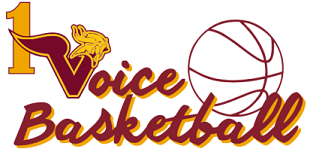Leadership

TEAM LEADERSHIP
Every team and every organization needs leaders – people who are courageous, have integrity, are committed to the common purpose and are humble enough to know what they don’t know. Humble leaders serve those who follow.
In an ideal situation the team is led by the coaches and the team captain(s). The captain is liaison to the coaches. Though these may be the “designated leaders” many teams have “untitled” leaders as well.
Pseudo captains are figureheads only. They schedule the annual team pasta party and do little else. Captains who lead have the courage, confidence and empathy to put and hold the team’s best interests at the forefront of all that they do. Most adolescents don’t show up with these skills. They need to be learned and practiced. Our leadership curriculum covers a variety of topics. Many of these topics relate to team development as well since true leaders are effective team builders.
ASSESSMENT
True leaders put in the time to assess their team’s individual and collective strengths and areas of development. They adjust their style of interaction to meet the needs of their team members.
TRUST
There are no relationships without trust. A group that lacks trust – in each other, or the coaches – will never become a team.
PURPOSE – INDIVIDUAL AND COMMON PURPOSE
Understanding what drives us and inspires us - our purpose - is connected to our life satisfaction. There is a reason basketball resonates with us. Something about the sport relates to who we are. Teams uncover the connections between each of their individual purposes – the things that tie us together.
TEAM DEVELOPMENT
This is a fluid, changing process. Understanding how highly effective teams operate allows for the aspirational work to begin – and it is work!
ACCOUNTABILITY
Committing to a common purpose – something we all say we want and are willing to commit to is not easy. Our common purpose reflects the connection between each of our individual purpose statements. Some of our team members may drift off course at times. It's not unusual to hear team members say they care about each other. If we truly care we’ll speak up when one of us fails to keep our commitment to our purpose.
COMMUNICATION
Thousands of years ago Aristotle identified three critical elements of a good communicator - credibility, integrity and competence. If you are not credible, lack integrity or if people do not see that you are competent in what you do, people will not believe in you or what you say. Even now, thousands of years later, we are all still working on mastering communication. Communication is a skill as important, if not more important than other basketball skills, like shooting or dribbling.
Coaches and team leaders must be intentional about their communication. Skilled leaders facilitate, present information, engage in conversations and write effectively. Coaches and team leaders must assure that their messages are carefully aligned with the team’s common purpose, values and culture. To be effective they must understand the different listening tendencies of their team members – how do they best process information.
Effective communicators build trust among team members and engage people in the pursuit of the dream – to be the best the team can be.
CONNECTION – The most effective leaders know how to connect with their team members. They do this by caring enough to learn about and understanding what is important to each team member. They do this by connecting team members with other team members and aligning their individual purposes with the team's common purpose.
Chapters
The style of leadership you choose is based on the needs of the player at the time.
ReadThe importance of trust in leadership and relationships is critical to team success.
ReadLeaders know the importance of having the difficult conversations and know how to have them.
ReadContact Us
You can reach us at
bpeterman24@gmail.com
Or call us at